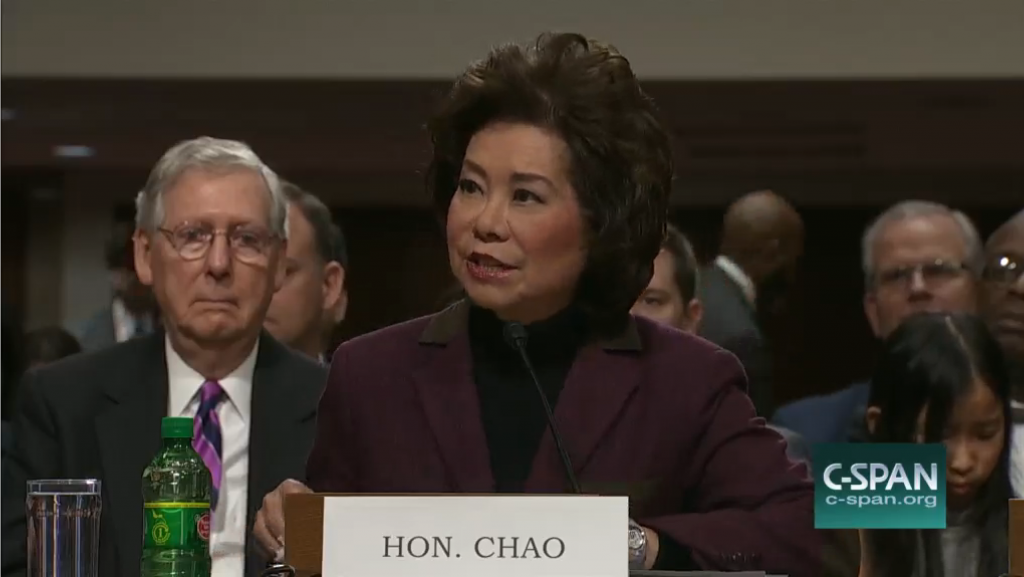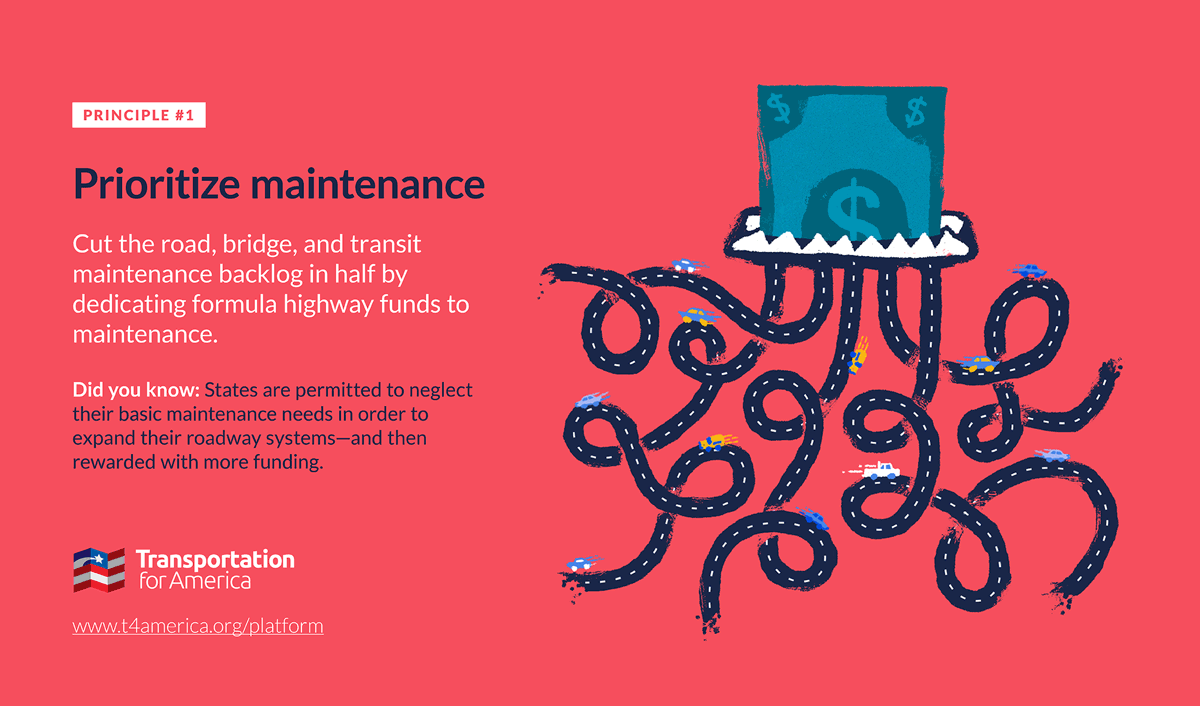Big questions largely avoided during the first confirmation hearing for Trump’s Secretary of Transportation nominee
Trump’s appointee to serve as Secretary of Transportation had a confirmation hearing yesterday before a Senate committee, and though she was light on specifics, there were some illuminating questions from Senators and answers from Secretary-designate Elaine Chao.

In a confirmation hearing largely overshadowed by the higher-profile (and more controversial) hearings going on at the same time for Secretary of State and Attorney General, Elaine Chao answered questions from senators on the Commerce Committee yesterday morning and provided at least a glimpse into what can be expected at USDOT under the incoming administration.
She filed a short opening statement that was light on specifics, but emphasized the need to increase private investment in infrastructure, to streamline the process of building transportation projects, and to help the federal government be a partner in the innovation of emerging technologies that is happening on the ground in cities — which is currently “led by the private sector,” she said.
In that statement, she identified how our transportation investments have helped us be competitive, but noted that those “gains are jeopardized by infrastructure in need of repair, the specter of rising highway fatalities, growing congestion, and by a failure to keep pace with emerging technologies.”
While highway fatalities are indeed increasing, pedestrian fatalities are also on the rise after years of decline. Following the release of Dangerous by Design 2016, which highlights the 46,000-plus people who were killed while walking from 2005-2014, T4America sent a letter signed by hundreds of supporters to the committee members asking them to press her on this safety issue.
Senator Brian Schatz from Hawaii took up the cause during the hearing, noting that we have a “serious safety crisis” overall, with more than 35,000 people dying on our roads in 2015 — “the largest increase in years;” “10 percent of those [deaths] were pedestrians,” he added, noting that the problem is particularly bad in Hawaii.
But “these [pedestrian fatalities] are preventable through best practices,” Senator Schatz added, noting how better street designs — and direct guidance from the federal government — can help states and MPOs build streets that are safer for everyone. He asked about her commitment to work on a safe streets agenda, to which Ms. Chao answered that she looked forward to working with him on the issue.
On the TIGER competitive grant program that is increasingly one of the best (or only) sources of funding for smart, local projects, Chao made no promises about overall funding for the program but noted that it was “one area of great agreement,” and that she was “impressed with how many members like it.”
On the elephant in the room, long-term funding for transportation, there was the typical rhetoric and few details — perhaps to be expected by any nominee at this point.
“President-elect Trump’s vision for an infrastructure proposal is ambitious, futuristic and comprehensive,” she said, noting that private investment and public-private partnerships need to be part of the mix. She was supportive of the TIFIA financing program (“It’s an important and valuable source of funding…we need more innovative sources like it.”) And she’s aware of the long-term structural problems with the gas tax, such as improved vehicle efficiency, and vehicle-miles-traveled — though now increasing after ten years of no growth — failing to come close to any of the federal projections for huge long-term growth.
She did answer a pointed question from Senator Cory Booker, who asked — financing and private investment aside — if she and President-elect Trump are in favor of increasing direct federal investment in transportation. Chao said, “I believe the answer is yes.”
And though it would be a question for Congress rather than the USDOT, she didn’t rule out Senator Mike Lee’s plan to essentially kill the federal transportation program, cut the federal gas tax down to a few pennies and let states decide whether or not (and how) they want to invest in transportation. “I’m open to all ideas,” she said, although this specific idea stands in stark opposition to the notion of increasing direct federal investment in infrastructure.
There was no vote on her confirmation today, and there could be another hearing for further questions. But evidence thus far suggests that Democrats are unlikely to oppose her nomination and she should be confirmed in a matter of time. As for what USDOT will look like under a Secretary Chao, there were a few hints of the approach today, but the proof will be in the pudding in 2017.
Watch the full video of the hearing above.




















Pingback: Today’s Headlines – Streetsblog St. Louis
Pingback: Anticipating a Big Year for Transit Expansion in 2017 – Streetsblog USA
Pingback: Anticipating a Big Year for Transit Expansion in 2017 – Streetsblog Denver